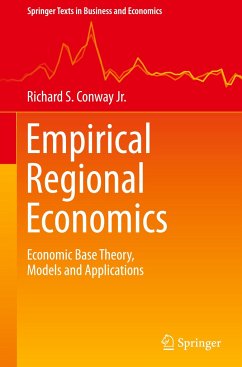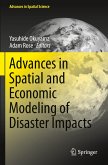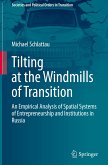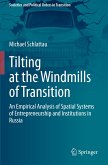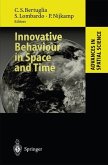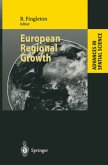This textbook offers an introduction to empirical regional economics, including a comprehensive and systematic overview of the fundamentals, history, development, and applications of economic base models. It not only provides a sound basis for regional economics and regional economic analysis, but it also includes numerous applications of the underlying theory. The book has an empirical orientation, highlighting the value of observation and testing in order to explain regional economic behavior. Theory plays an important role in this study, but it is only a starting point.
The book is divided into three parts: the first discusses the economic base theory of regional growth and the empirical evidence supporting it, while the second part covers the specification and application of four increasingly complex regional economic models: the economic base model, the input-output model, the interindustry econometric model, and the structural time-series model. Lastly, the third part presents forty-eight regional economic case studies organized under seven headings, including economic cycles, economic policy, and regional forecasting.
Given its scope, the book appeals to upper-undergraduate and graduate students majoring in economics, economic geography, and business, as well as to anyone in the private or public sector interested in gaining a better understanding of practical methods of regional economic forecasting and analysis.
For additional course material, please check the author's website: https://www.empiricalregionaleconomics.com
The book is divided into three parts: the first discusses the economic base theory of regional growth and the empirical evidence supporting it, while the second part covers the specification and application of four increasingly complex regional economic models: the economic base model, the input-output model, the interindustry econometric model, and the structural time-series model. Lastly, the third part presents forty-eight regional economic case studies organized under seven headings, including economic cycles, economic policy, and regional forecasting.
Given its scope, the book appeals to upper-undergraduate and graduate students majoring in economics, economic geography, and business, as well as to anyone in the private or public sector interested in gaining a better understanding of practical methods of regional economic forecasting and analysis.
For additional course material, please check the author's website: https://www.empiricalregionaleconomics.com
"This textbook is a welcome addition to the field of regional science. The textbook fits a unique niche: an introductory textbook with sufficient modeling depth and case study breadth. Conway's clear, concise teaching style and detailed examples will appeal to educators ... . Finally, regional scientists and scholars interested in the Puget Sound region will find an impressive amount of information, ensuring the textbook also serves as a handy reference well beyond its in-class use." (Courtney Bower, growth and change, February 9, 2024)
"ERE is in many ways a true labor of love and a gift to regional economic practitioners. ... ERE is an incredible how-to, a rich legacy from one who knows, and in its own unassuming way, a tribute to an incredible and successful career in regional economics." (Randall Jackson, Economic Development Quarterly, October 3, 2023)
"It is a valuable textbook suggested for regional scientists, as it provides a comprehensive empirical overview of regional economics, by (i) emphasizing the use of empirical methods and data towards the understanding of regional economics; (ii) providing insights into the modern aspects of regional economics and their policy implementation; and (iii) highlighting the importance of endogenous characteristics of regions towards economic growth and development." (Dimitrios Tsiotas, Regional Science Inquiry, Vol. 15 (1), 2023)
"ERE is in many ways a true labor of love and a gift to regional economic practitioners. ... ERE is an incredible how-to, a rich legacy from one who knows, and in its own unassuming way, a tribute to an incredible and successful career in regional economics." (Randall Jackson, Economic Development Quarterly, October 3, 2023)
"It is a valuable textbook suggested for regional scientists, as it provides a comprehensive empirical overview of regional economics, by (i) emphasizing the use of empirical methods and data towards the understanding of regional economics; (ii) providing insights into the modern aspects of regional economics and their policy implementation; and (iii) highlighting the importance of endogenous characteristics of regions towards economic growth and development." (Dimitrios Tsiotas, Regional Science Inquiry, Vol. 15 (1), 2023)

